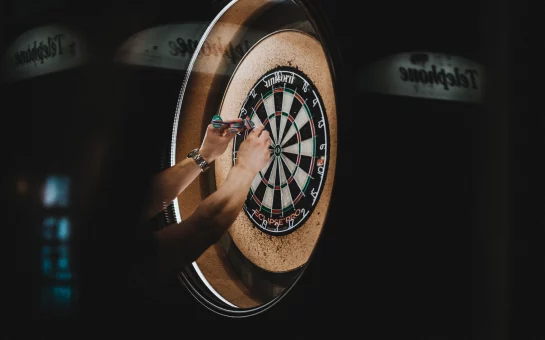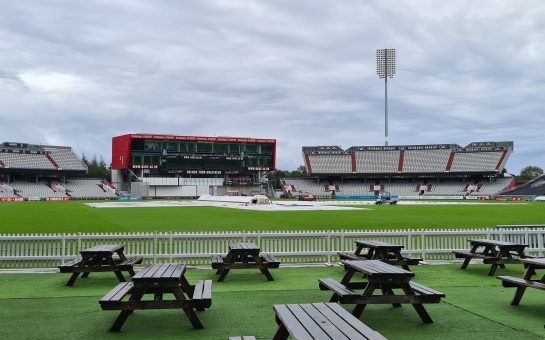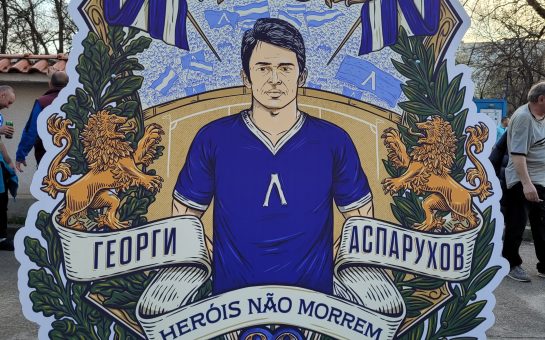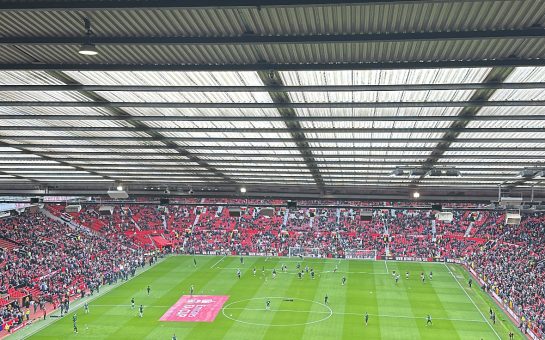Manchester United’s 2-1 loss to Swansea on Saturday certainly came as a shock, but the ludicrous expectations surrounding Louis van Gaal could not last forever.
On Saturday afternoon, the eulogists fled Old Trafford and the doomsayers moved back in.
How could we have been so wrong? Louis van Gaal is no magician; he’s just a manager, managing a particularly ordinary side.
Amid the scaremongering and schadenfreude, it was easy to forget that United began last season by beating Swansea 4-1, before it all unravelled.
Let’s be clear: United were dire. The defence bordered on farcical – hardly helped by the lack of midfield protection – and new captain Wayne Rooney was the only forward to emerge with any credit.
After Gylfi Sigurdsson scored Swansea’s second, United looked so short of ideas that they plumped for the hit-and-hope crossing that became all too familiar under David Moyes.
Later on Saturday, Arsenal sought a late winner against Crystal Palace – but instead of firing in hopeful crosses, they continued to keep possession and seek the spaces behind their tiring opponents.
Arsene Wenger’s side, of course, got their goal and in doing so showed the gap which has been allowed to open up between themselves and United.
However, United should not panic. Instead the defeat should be seen as a reality check after a pre-season which raised expectations beyond rational limits.
Of course United need fresh recruits, but Van Gaal also requires time to get United playing intelligent football – as in Ashley Young’s opener against Real Madrid last month – on a consistent basis.
In terms of buying players, the purchase of an imposing centre back is a must, as is securing the signature of Daley Blind.
The Dutch Footballer of the Year in 2013-14 was one of the standout performers at this summer’s World Cup, and excelled once again for Ajax in their 3-1 win over AZ Alkmaar on Sunday.
He has the positional intelligence to play as a left-back, left wing-back or central midfielder and – crucially – he understands the Van Gaal system, having played under him at the World Cup.
It is intelligence and understanding that United need, as Van Gaal indicated after the Swansea defeat.
He said: “Reaching the level we want is something different. That is not only running, but also to use your brain and then you can play like a team.”
Van Gaal’s philosophy – regardless of whether he is playing three or four at the back or one or two holding midfielders – ultimately boils down to a system in which all players contribute to the team effort.
Some of United’s current players have the ability and attitude Van Gaal demands; many others do not.
All of them, and however many new signings come in, will take time to adapt to the system and understand the team dynamic.
Whereas the bulk of Arsenal’s squad has had several seasons being schooled in Wenger’s mode of attractive football, United’s has to bounce back after a season of directionless calamity.
Van Gaal describes himself as a prozesstrainer – he engages players’ minds and while there are no instant results, fans’ patience is usually rewarded with thrilling football and, in time, silverware.
At both Ajax and AZ, Van Gaal needed several seasons to craft a league-winning side, while at Bayern Munich he failed to win any of his first three Bundesliga games, before going on to win the league and cup double.
He is a manager who is always looking to the long-term, hence his emphasis on youth and a coherent playing style at all levels of the club.
That translates into legacy – he did not win the Champions League while at Barcelona or Bayern and left both under a cloud, but he also left a blueprint for future success.
Their styles of play – based on possession and pressing – owe much to Van Gaal, while Xavi and Thomas Müller are among those whom the Dutchman earmarked for success.
This means that when Van Gaal says he needs time to fix United’s problems, fans can be confident that he will utilise that time wisely.
He has, if nothing else, identified what the issues are – poor decision-making when passing, not working as a team – which is rather more constructive than Moyes’ ‘we were unlucky’ and ‘we’ll keep trying’.
Already there is much greater optimism and confidence at the club than there was at any point last season, with pre-season results better than anyone could have expected.
The downside to wins over Roma, Real Madrid and Liverpool is that they perpetuate the notion that United are title challengers.
They are not. Not only were they 22 points behind Manchester City last season, they were 15 points adrift of the Champions League places.
That is a huge gap to make up, and yet to finish outside the top four again would be highly damaging – for both United and Van Gaal’s reputations and also for the club’s commercial interests.
The Dutchman will, without question, imbue the club with his principles and a sense of purpose which has been missing since Sir Alex Ferguson’s retirement.
That, going by the achievements of Barcelona and Bayern and the aesthetically-pleasing football they played along the way, can only be a good thing for United’s future.
This season, however, is likely to be one of frustration and growing pains – with the Swansea defeat a reminder of how far the club still has to go to regain its place at Europe’s top table.
That can still be achieved, of course it can. But merely spending further millions on new players won’t guarantee it – there is no quick fix.
Instead, Van Gaal, his staff and his players must make the most of those weeks free of Champions League fixtures – working hard, thinking hard and developing a winning system.
Main image courtesy of Carl Recine/Action Images, with thanks.



